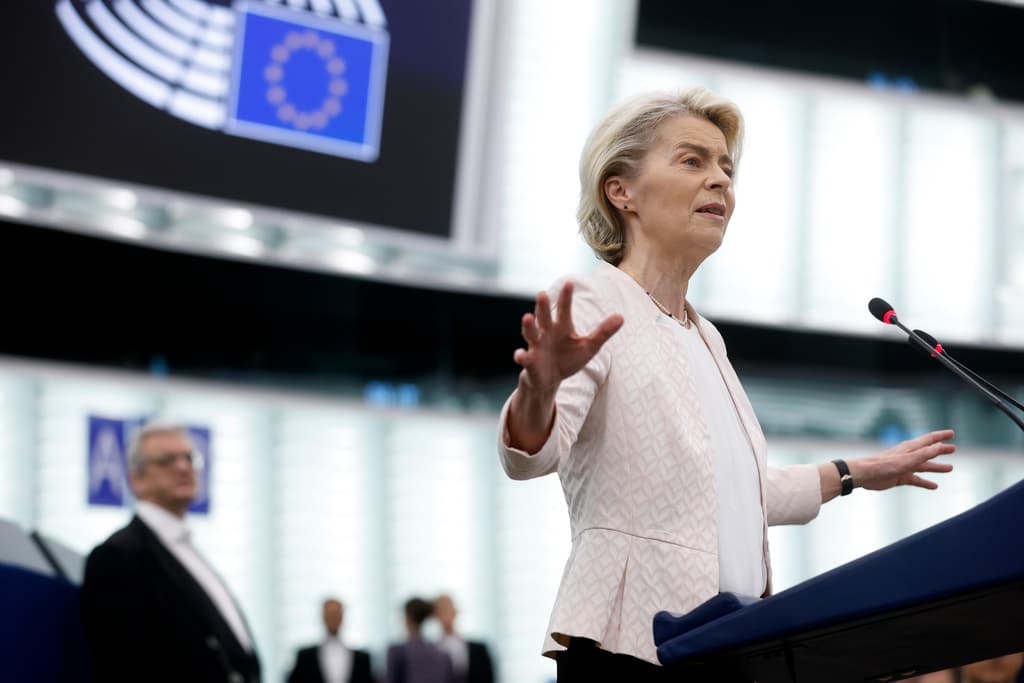Ursula von der Leyen has been re-elected as Commission President and can take a vacation – for the entire weekend.
Then the work begins to piece together people and assignments to fulfill all the new promises.
Step one for von der Leyen will be to ask all EU country leaders to propose who they want to send to the new Commission that will take office late this autumn.
And just like in 2019, she wants everyone, at least internally, to propose both a man and a woman so that she can build a gender-equal Commission.
The only exception is if it's a sitting Commissioner who stays, explained von der Leyen at a press conference on Thursday.
If she really gets two proposals from everyone remains to be seen. Several countries, including Sweden, which has nominated EU Minister Jessika Roswall (The Moderate Party), have already publicly announced who they want to send and are unlikely to double up with another candidate.
Hearings in the Autumn
In August, von der Leyen will then interview the candidates and try to piece them together with the "right" assignments. The battle is traditionally tough to get as many important posts as possible.
Everyone wants a Vice-President and everyone wants an economic portfolio. Good luck, says an EU diplomat to the news site Politico Europe.
Once the puzzle is complete, each candidate will also undergo a tough grilling in the EU Parliament committee that handles their issues. The hearings, which are likely to begin at the end of September, have over the years led to both tears and quarrels and usually mean that at least one or two candidates are forced to withdraw.
Ocean Pact
Then the Commission will also try to deliver on what was promised in von der Leyen's guidelines. The pressure will likely be high from the EU Parliament on everything from better competitiveness to reduced bureaucracy and investments in trains and housing.
And on the marine environment – where von der Leyen has promised a special "ocean pact".
It must be a pact for the fish and the sea if the fishermen are to have sustainable incomes, if we are to have living coastal communities and for all other industries that depend on us having healthy seas – not least tourism and recreation, says Swedish MEP Isabella Lövin (Green Party) in Strasbourg.
The EU Commission functions in practice as the EU's "government" and submits various proposals that are then processed in parallel by the EU member states in the Council of Ministers and by the MEPs in the EU Parliament.
The Commission consists of one member from each member state. Once they are appointed, they no longer represent their home countries but are expected to act neutrally.
Nominated for the next Commission are already Estonia's Kaja Kallas (as Foreign Minister), Sweden's Jessika Roswall, Finland's Henna Virkkunen, Spain's Teresa Ribera, Ireland's Michael McGrath, Latvia's Valdis Dombrovskis, and Slovakia's Maros Sefcovic.






